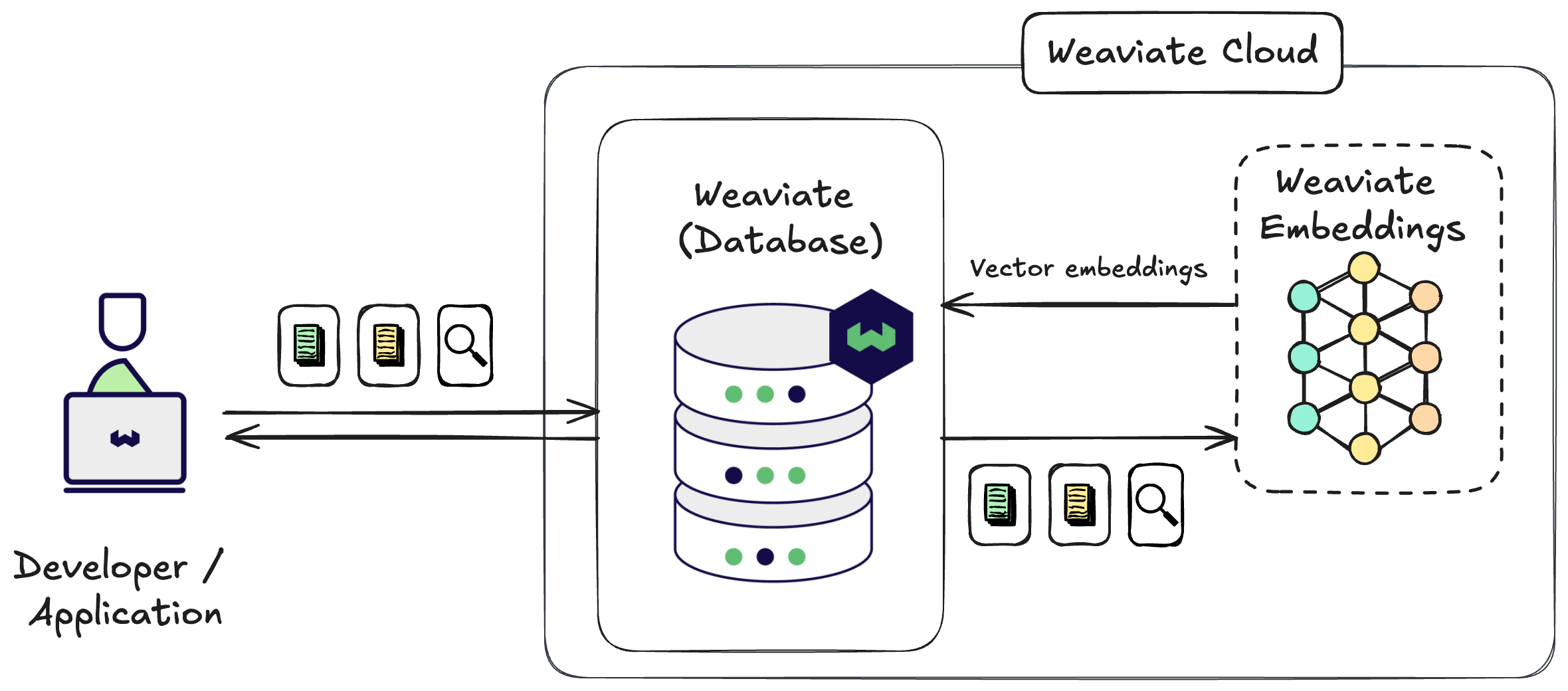Weaviate Embeddings
Weaviate Embeddings is a managed embedding inference service for Weaviate Cloud users. It helps generate embeddings for your data and queries conveniently and directly from a Weaviate Cloud database instance.

Weaviate Embeddings is a paid service and only available for use with Weaviate Cloud instances. You can try it out for free by using a Sandbox cluster.
With Weaviate Embeddings, you can generate embeddings for your data and queries directly from a Weaviate Cloud database instance.
This means you can perform keyword, vector and hybrid searches without the need to externally generate vector embeddings, or manage additional model providers.
Follow the quickstart guide to get started with Weaviate Embeddings.
Available models
The following models are available for use with Weaviate Embeddings:
Authentication
In order to use Weaviate Embeddings you only need a connection to your Weaviate Cloud cluster. No additional authentication is specifically needed, and the Weaviate Embeddings service is enabled by default for all clusters. You can use the service no matter if you connect with a client library or, for example, via OIDC.
Usage limits
Weaviate Embeddings only imposes usage limits on requests for free Sandbox clusters.
The rate limit for Sandbox clusters is 2000 requests per cluster per day.
If you use a batch import to vectorize your data, the maximum size is 200 objects per batch.
This means that you can generate up to a maximum of 400 000 embeddings (2000 (requests) * 200 (objects per request)) within your free Sandbox cluster per day.
Requirements
To use Weaviate Embeddings, you need:
- A Weaviate Cloud instance running at least Weaviate version
>=1.27.10,>=1.28.3or>=1.29.0. - A Weaviate client library that supports Weaviate Embeddings:
- Python client version
4.9.5or higher - JavaScript/TypeScript client version
3.2.5or higher - Go/Java clients are not yet officially supported; you must pass the
X-Weaviate-Api-KeyandX-Weaviate-Cluster-Urlheaders manually upon instantiation as shown below.
- Python client version
Data privacy
Weaviate Embeddings is a stateless service that does not store any data.
The data provided to Weaviate Embeddings is used solely for the purpose of generating embeddings. We do not store or use your data for any other purpose, including training or model improvement.
Service and data location
Weaviate Embeddings makes use of infrastructure located in the United States. Note that by using Weaviate Embeddings, you are agreeing to have your data transferred to the United States for processing.
We may expand the service to other regions in the future.
Additional resources
- Weaviate Embeddings: Quickstart
- Weaviate Embeddings: Choose a model
- Weaviate Embeddings: Administration
- Model provider integrations: Weaviate Embeddings
Support
For help with Serverless Cloud, Enterprise Cloud, and Bring Your Own Cloud accounts, contact Weaviate support directly to open a support ticket.
For questions and support from the Weaviate community, try these resources:
To add a support plan, contact Weaviate sales.
